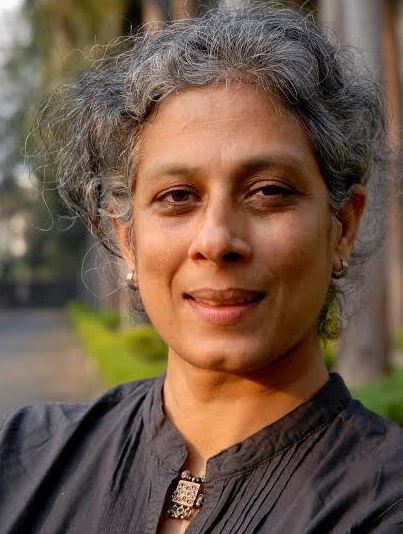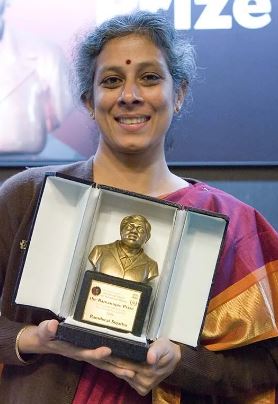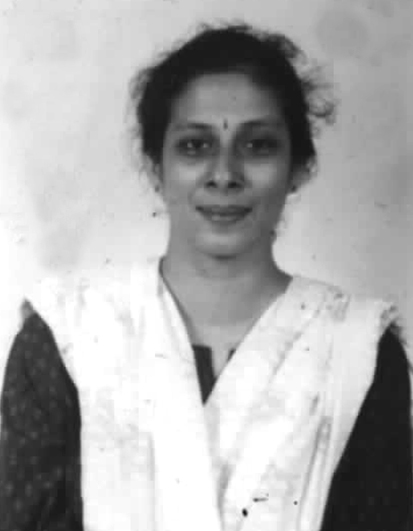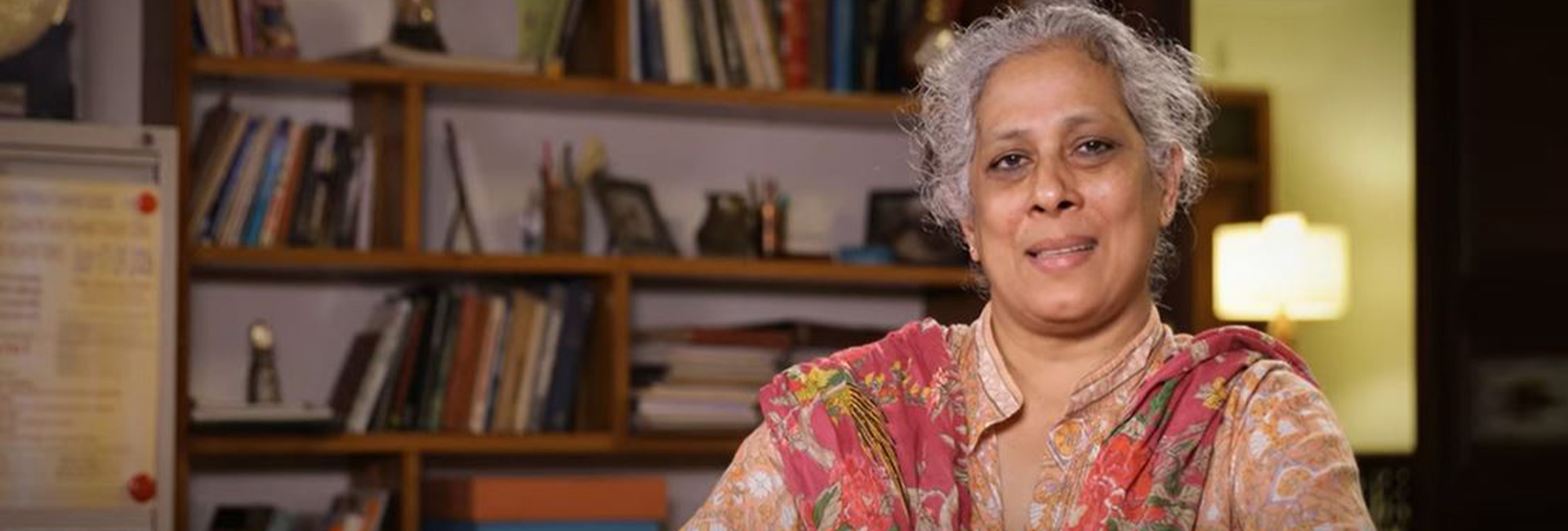(March 1, 2023) On Republic Day 2023, the Ministry of Home Affairs announced the names of the recipients of the highest civilian awards of India – the Padma Awards. The list included Sujatha Ramdorai, the Indian-origin mathematician who is a professor of mathematics and Canada Research Chair at University of British Columbia. The algebraic number theorist is known for her work on Iwasawa theory – the study of objects of arithmetic interest over infinite towers of number fields.
Professor Ramdorai has earned several awards and accolades over the years for her contributions to mathematics. She became the first Indian to win the prestigious ICTP Ramanujan Prize in 2006 in recognition of her work, which has implications in the fields of complex geometry, topology, number theory and cryptography. She is also a recipient of the Shanti Swarup Bhatnagar Award – the highest honour bestowed by the Government of India in the field of STEM. One of the finest Indian mathematicians, Professor Ramdorai received the Krieger–Nelson Prize in 2020 for her pathbreaking research by the Canadian Mathematical Society.

Professor Sujatha Ramdorai
Despite achieving so much both in India and abroad, the Global Indian remains humble and is not at all a fan of the pursuit of success. “Today we have put success in such a high pedestal that we have lost our moral moorings,” she said in an interview.
We worship others’ success without questioning how they really achieved that. Many people succeed by deliberately pushing others to the ground. I don’t think that kind of success should either be worshipped or appreciated.
The ace mathematician believes in acknowledging not just those who have attained success but even those who might not have succeeded but have done good work to help the society. “This approach should be applied to both individuals and nations,” she remarked. “How much money one has accumulated should not be an indicator of success. I don’t think that’s a good lesson to impart to youngsters,” believes the ace mathematician.
The math guru
In one of her TEDx Talks, Professor Ramdorai cited Galileo – the father of modern science, who made major contributions to the fields of astronomy, physics, cosmology, philosophy and mathematics. “Learn math because it’s the language in which the Gods have written the universe,” she shared, elaborating how Galileo’s words have affected her choices in life.
The illustrious professor is a member of the scientific committees of several international research agencies, including Banff International Research Station, International Centre for Pure and Applied Mathematics, and Indo-French Centre for Promotion of Advanced Research. In the past, she was also associated with the National Knowledge Commission, a think tank constituted by former PM Manmohan Singh, and Government of India’s Scientific Advisory Council.
A little-known fact…
While people may be aware of her achievements in maths, Professor Ramdorai is a true inspiration in many other ways. In 2015, she was diagnosed with brain cancer and had to undergo an emergency surgery. “For me the main concern was whether I would be able to do math again, she said during one of her TEDx Talks. “This deep concern led me to think about, why I love mathematics so much – there is a sense of mystery, there is a sense of being confronted with the unknown,” she told.
Throwing light upon the connections between math, and art she pointed out:
There is a component of mathematics which is pure art. In the sense, if you prove something in maths, small bits come together, it’s like crafting and planning a symphony.
Her road to recovery from brain cancer interestingly involved discovering a new hobby, and that was painting.
Making math more welcoming
Professor Ramdorai strongly believes in transforming learning of mathematics in the classroom in a way that encourages students to develop more interest in it. “We don’t have to make it competitive. Make it cooperative and make students aware that knowledge is a collective endeavour.” This, she believes, would turn the whole process of learning into a more equitable endeavour, making students embrace the subject wholeheartedly. “They would become more imaginative. It will give a ‘can do’ feeling to the learners,” she remarked.

Photo Credit: International Centre for Theoretical Physics, Italy
Along with her husband, Srinivasan Ramdorai and Indian mathematical writer VS Sastry, the Padma Shri awardee has partially funded the Ramanujan Math Park in Chittoor, Andhra Pradesh, which was inaugurated in 2017. The park is dedicated to mathematics education and honours the work of the great Indian mathematician Srinivasa Ramanujan, who is an inspiration for Ramdorai. “He is one of the greatest mysteries of the mathematical landscape. He had a great grasp on the subject and was self-taught. This to me is tremendously admirable,” she said.
Early years
Professor Ramdorai grew up in Bengaluru (then Bangalore) and loved mathematics, even as a child. “By the time I was in class five, I realised that maths was a subject where all you need to do is to understand what was happening. You didn’t need to learn by rote, like in History, where I faced problems remembering the details like the dates of wars, ascensions to the throne and how long the various rulers ruled and so on,” she said, reminiscing about her childhood.
For me mathematics was equivalent to the computer games that today’s children play.
Ramdorai used to indulge in the fascinating world of numbers wherever she could. “For instance, after I learned addition, whenever I went out in a car or a scooter, I used to add the digits on the number plates of the vehicles on the road. It became a game for me and my brother, both wanting to add the numbers faster than the other.”
One of the greatest influences in Professor Ramdorai’s life has been her grandmother from whom she imbibed the values of discipline and earnestness. “She taught me and my brother the dignity of labour. Whatever you do, do it to the best of your abilities is what she used to tell us,” she said in an interview.

Photo Credit: Indian Academy of Sciences, Bengaluru
After finishing high school, the math enthusiast completed her B.Sc. in Mathematics at St. Joseph’s College, Bengaluru and went on to do her M.Sc. from Annamalai University. She completed her PhD from the Tata Institute of Fundamental Research (TIFR) where she worked for a few years before moving to Ohio State University to do her post-doctoral research.
Life then took her to Canada where she currently works and lives with her husband. “Whether you are a boy or a girl, just keep in mind that you can do anything. Gender does not come in the way of attaining knowledge if one is curious, focused and believes in deep learning,” believes Professor Ramdorai.
- Follow Professor Sujatha Ramdorai on LinkedIn




